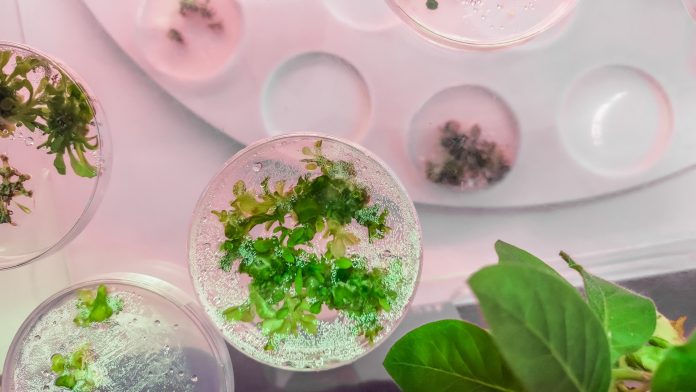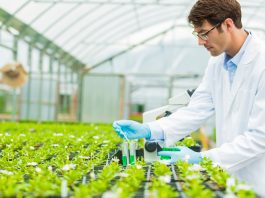Understanding the intra-cellular bacteria of healthy plants is opening new fields of research to improve future plant health and propagation efforts.
The researchers utilised a multitude of high-tech laboratory techniques to show that endophytic bacteria can exist inside plant cells, leading to the phenomenon of ‘alien life’ in the cells of healthy plants. This research could improve the plant health of food crops such as grains and fruit.
“It’s baffling how this bacterial association in cell cultures escaped the attention of plant biologists and microbiologists considering that this is a widespread phenomenon in plant tissue cultures we tested, and the in-vitro cultures have long been used in both basic and applied research,” commented senior Flinders University Professor Chris Franco.
Research collaborators Dr Pious Thomas, previously from the Indian Institute of Horticultural Research and Flinders Emeritus Professor Franco say cytobacteria – Cytobacts – have been widely observed in micro-propagating stocks in crops such as banana and papaya.
The results have been published in the journal Microorganisms.
Dr Pious Thomas, CEO and director of Thomas Biotech and Cytobacts Centre for Biosciences commented: “I am excited to expand this new field of plant cell biology in my R&D centre at Bengaluru with the plan to focus on endophytic microorganisms and allied areas with a primary focus on micropropagation of papaya which is severally hampered due to interference from microbial contaminants.
“Normally the endophytic bacteria are known to reside between plant cells. Because plant cells are considered to be free of other living organisms, it goes against the grain to report bacteria within plant cells.
“We need new tools to be able to study the role of these intracellular bacteria in healthy plants which are not normally amenable for conventional microbiological methods.”
Franco added: “This new paradigm of cytobacteria in health cells has the potential to open up a whole new area of research, including plant biology, human health and environmental microbiology.
The novel research indicates that Cytobacts could have been modified in plant species after losing some of their functions and ability to synthesise compounds, so they become obligate symbionts of the plant cell.
“Potentially they are involved in some of the integral functions of plants, such as energy metabolism, or as an inducer of defence responses against other microorganisms,” he said.









